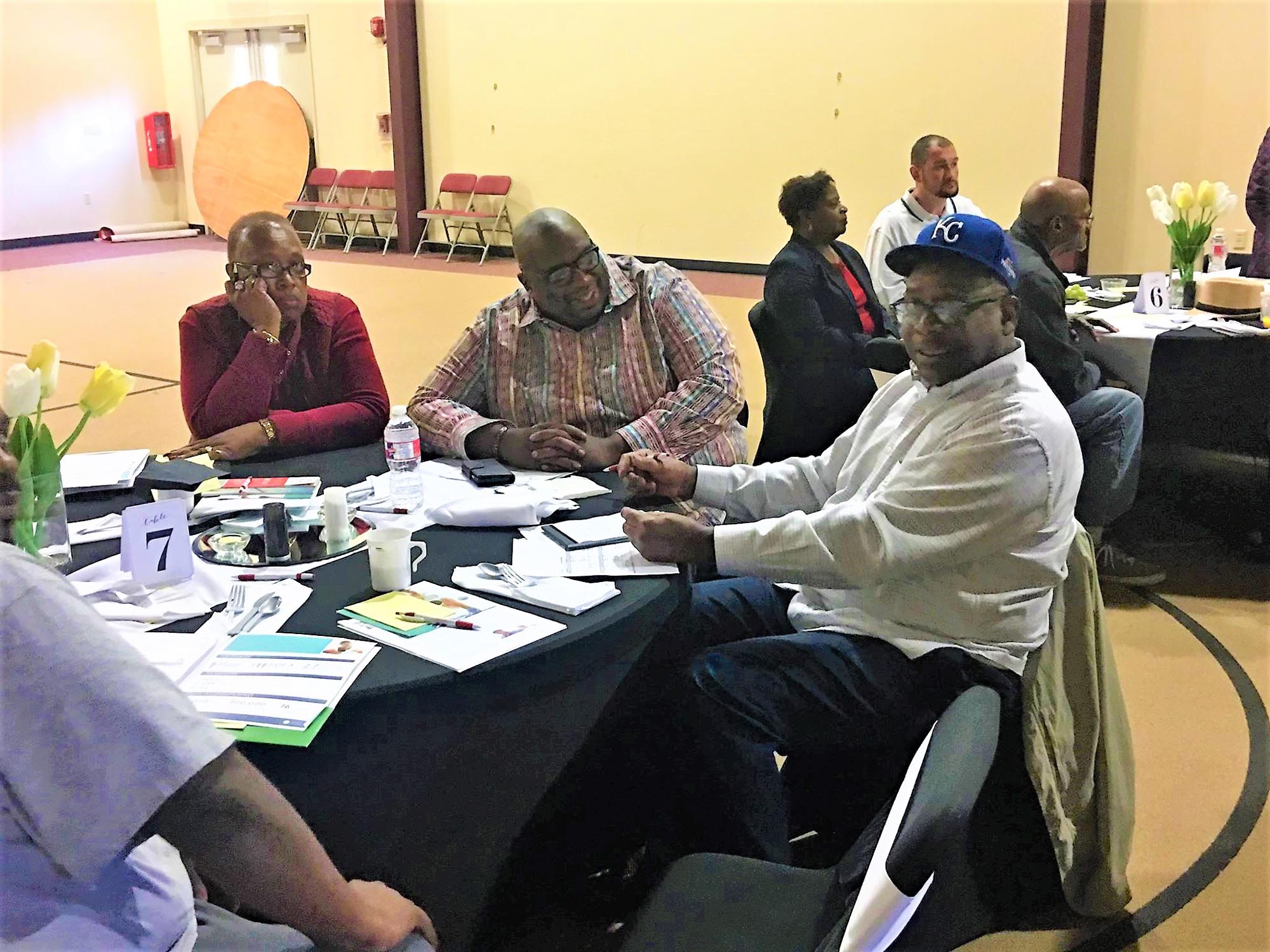
KANSAS CITY, Mo. (BP) — Racial disparities within America’s criminal justice system are spurring black Southern Baptist pastors to work more closely with the national evangelical Prison Fellowship ministry, a pastors’ group told Baptist Press.
The National African American Fellowship (NAAF) of the Southern Baptist Convention is dialoging with Prison Fellowship to study ways pastors can cooperate with the national prison ministry to better serve congregations, NAAF Executive Director Dennis Mitchell said.
“With the staggering number of African Americans incarcerated, the social, educational and economic repercussions continue to adversely impact the communities our churches minister to,” Mitchell said.
“And while many of our churches are making great efforts to address the issues associated with this crises,” he said, “we feel a formal relationship with Prison Fellowship will enable our churches to be even more effective in their ministry to prisoners by tapping into the resources of one of the world’s largest ministry to prisoners, former prisoners and their families.”
NAAF member Darron LaMonte Edwards, pastor of United Believers Community Church in Kansas City, Mo., hosted a Prison Fellowship ministry training workshop April 21. About 50 community and religious leaders attended the event, Edwards said.
“We believe this a perfect fit within the objectives of NAAF as we find ways to improve and empower the communities we serve,” Edwards told BP. “For starters, we will participate in the Angel Tree program. … We will soon after participate in their Second Chance campaign and in prison ministry opportunities.”
Edwards referenced Prison Fellowship’s Second Chance Month campaign for policies and programs to rehabilitate prisoners and help them reenter society as productive citizens. Supporting the campaign are President Trump, the U.S. Senate, at least eight states, and 150 religious and secular organizations including the Southern Baptist Ethics & Religious Liberty Commission.
Edwards’ church is in Jackson County, where the 1,000 or so children whose parents are incarcerated is the highest concentration in the state, Edwards told BP. Through Angel Tree, the church can began building relationships with families suffering incarceration by giving children Christmas presents and continuing outreach year-round.
With Prison Fellowship, Edwards said he hopes to begin “a movement in the state of Missouri to restore and reconcile families who are impacted by crime and incarceration. With our church involvement and other like-minded congregations who were present (at the workshop), that number should be drastically reduced.”
Edwards and the nearly 4,000 other pastors who comprise NAAF minister to congregations that are overwhelmingly African American and thereby disproportionately impacted by the prison system.
African Americans are adversely impacted at every level of the criminal justice system, according to the Sentencing Project, a nonprofit national group that has worked for justice reform since 1986. Blacks comprise 13 percent of the population but accounted for 27 percent of arrests in 2016, according to Sentencing Project 2016 statistics.
“African Americans are more likely than white Americans to be arrested; once arrested, they are more likely to be convicted; and once convicted, they are more likely to experience lengthy prison sentences,” the Sentencing Project said in an April 19th report to the United Nations on such racial disparities.
“African-American adults are 5.9 times as likely to be incarcerated than whites and Hispanics are 3.1 times as likely,” the report states. “As of 2001, one of every three black boys born in that year could expect to go to prison in his lifetime, as could one of every six Latinos — compared to one of every seventeen white boys.”
Juveniles are also adversely affected. In six states in particular, New Jersey, Wisconsin, Montana, Delaware, Connecticut and Massachusetts, black youth are at least 10 times as likely to be placed in juvenile detention than white youth, the Sentencing Project said in its 2017 Annual Report.
The impact of incarceration on communities continues after prisoners are released. Nationwide, as many as 60 percent of ex-prisoners are unemployed one year after their release from prison, according to Prison Fellowship statistics.
Prison Fellowship advocates for justice reform at the state and federal levels, but also works evangelistically through various programs to spread the Gospel among prisoners and help them thrive after incarceration.
“We see Prison Fellowship as an Evangelical-based organization that has a long track record of advocating for a more restorative criminal justice system,” Mitchell said, “as well as working with churches, community groups and local service providers to support former prisoners, their families and their communities.”
The details of NAAF’s full cooperation with Prison Fellowship are still being developed, Mitchell told BP.
“We feel very strongly that one of the greatest benefits we can provide to our members is to use our vast network of ministry relationships to help our churches discover and connect with mission/ministry resources and opportunities in the Body of Christ,” Mitchell said, “both within and outside the SBC.”
See BP’s April 27 story on Prison Fellowship’s Second Chance Month.
















